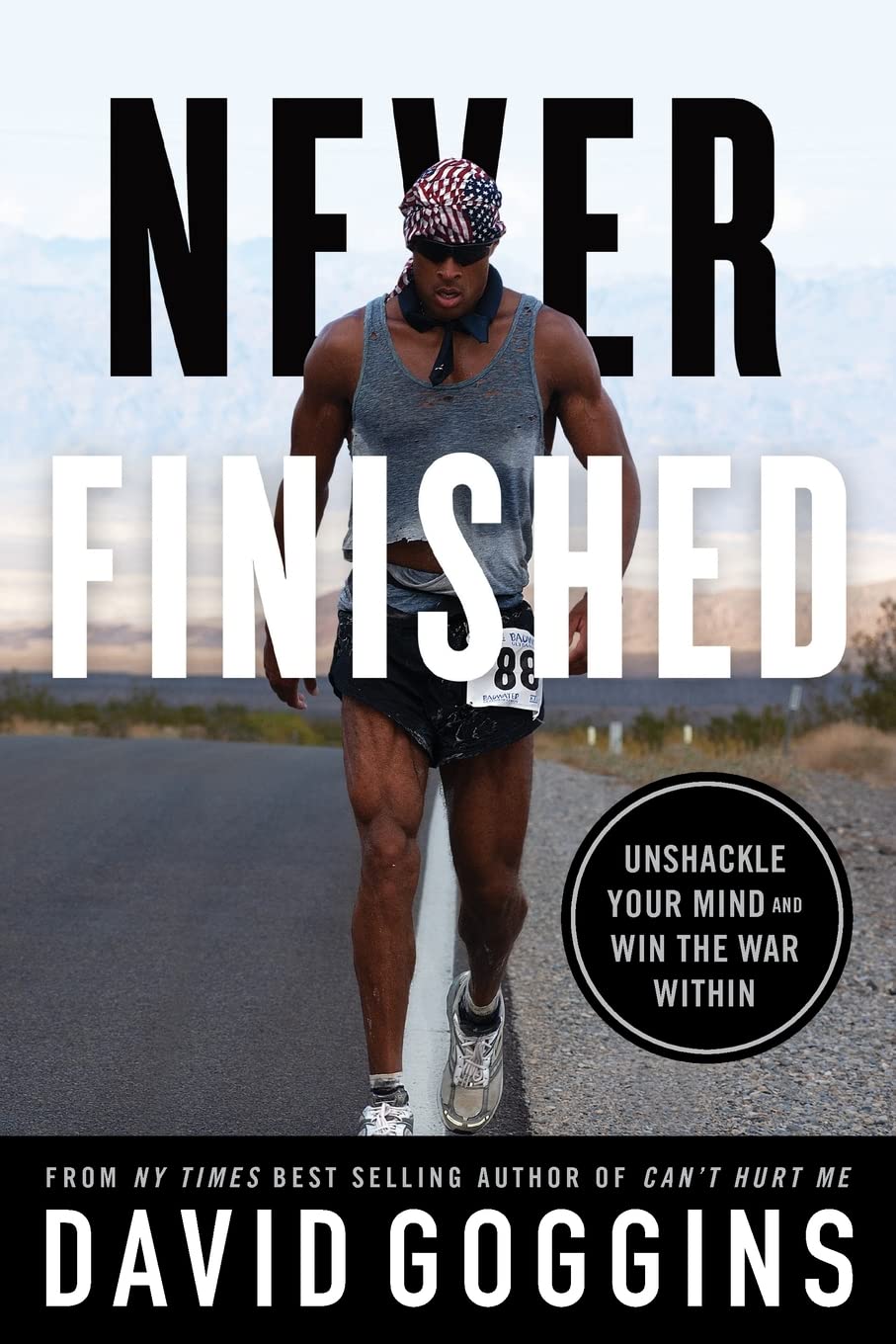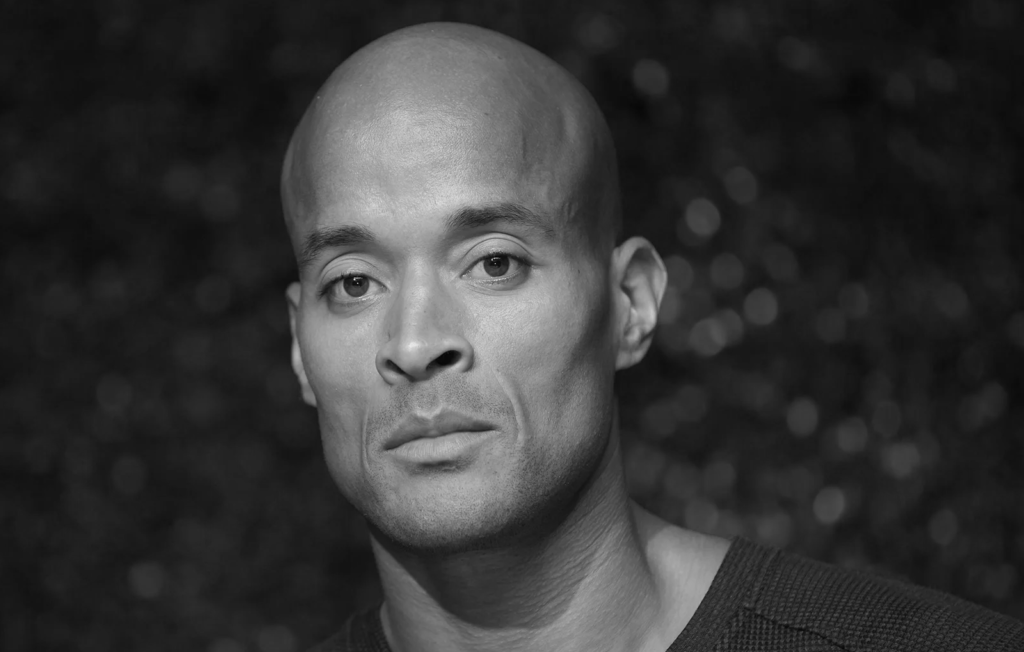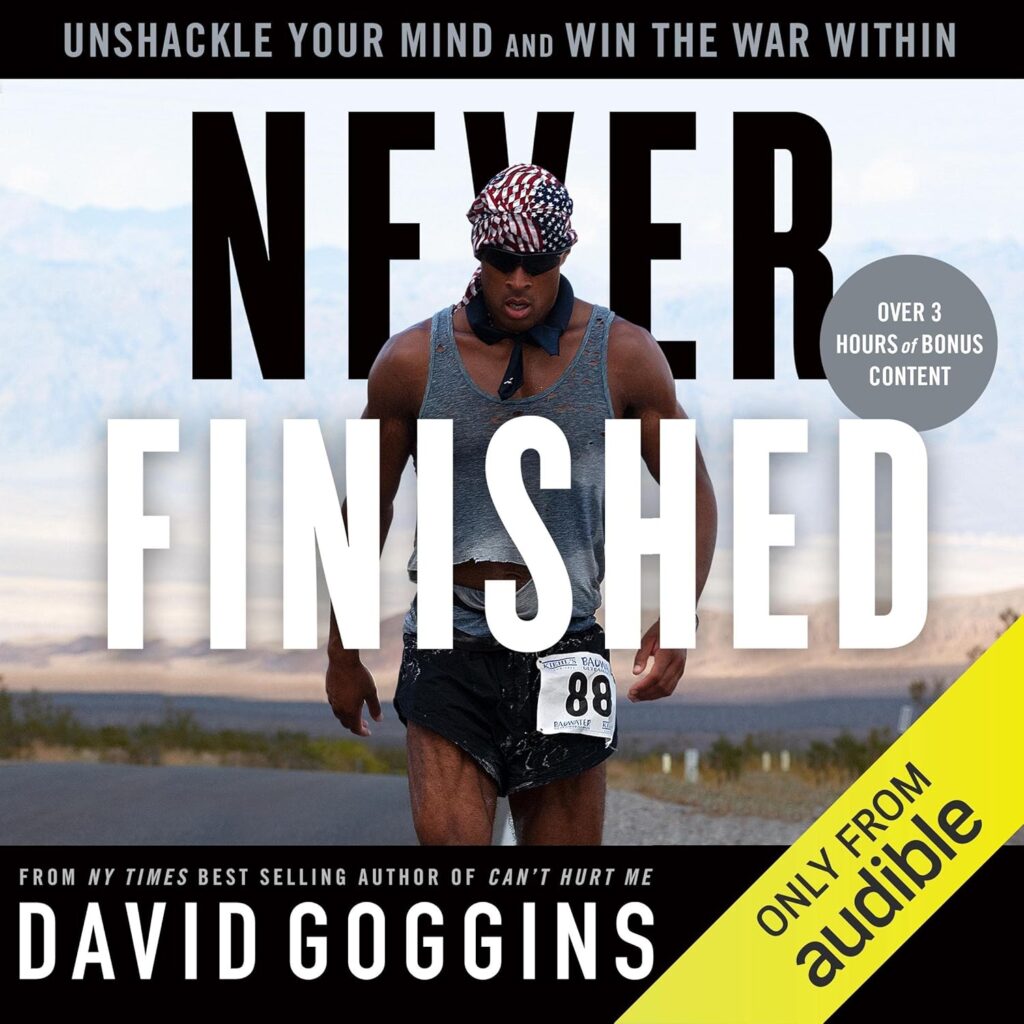
Book Review: Never Finished: Unshackle Your Mind and Win the War Within by David Goggins
David Goggins is no ordinary motivational figure. A retired Navy SEAL, ultra-endurance athlete, and former Guinness World Record holder for the most pull-ups in 24 hours, Goggins is best known for his brutally honest and no-excuses approach to life, which he detailed in his bestselling memoir, Can’t Hurt Me. His second book, Never Finished: Unshackle Your Mind and Win the War Within, is not a mere sequel or continuation of that journey. It’s an expansion—deeper, darker, more personal, and even more relentless. In Never Finished, Goggins doesn’t simply chronicle his victories; he explores the darker undercurrents of mental struggle, the complexity of growth, and the cost of living a life with no retreat.
Overview and Structure
At its core, Never Finished is a call to arms for anyone who feels stuck, soft, or complacent. It’s structured as a hybrid between memoir and self-help, combining stories from Goggins’ life with reflective insights and actionable challenges called “Evolution.” These challenges are designed not to coddle but to provoke discomfort, the kind that leads to personal transformation. While Can’t Hurt Me was largely autobiographical, Never Finished places a greater emphasis on ongoing mental conditioning, discipline, and emotional resilience.
The book is divided into several parts, each delving into key themes: overcoming trauma, facing one’s inner demons, enduring pain, and redefining identity. Goggins uses episodes from his post-Can’t Hurt Me life—his training, injuries, personal relationships, and inner turmoil—to illustrate how the war within never truly ends. This is not a tale of triumph but of perpetual struggle, and therein lies its power.

The Relentless Pursuit of Discomfort
One of the central themes of the book is the necessity of discomfort. Goggins argues that modern society is engineered to eliminate pain, shield us from hardship, and offer excuses at every turn. He sees this comfort as a poison—one that numbs ambition, weakens resilience, and dilutes potential. His prescription is simple but not easy: lean into the pain, live on the edge, and find growth in suffering.
In one powerful chapter, Goggins recounts a period when he was physically broken, unable to train due to injuries. Rather than accept this as a time to rest, he devised grueling mental routines and visualizations to keep himself sharp. He crafted imaginary races in his mind, complete with competitors, terrains, and checkpoints. Through this, he demonstrates the difference between motivation and discipline: motivation fades, but discipline is forged through repetition and resolve, especially when no one is watching.
Goggins argues that people don’t rise to the occasion—they fall to the level of their training. He emphasizes that the mind, like the body, must be exercised daily, and that excuses are merely well-reasoned lies.
Trauma and the Inner Voice
A compelling and underappreciated aspect of Never Finished is Goggins’ confrontation with his own trauma and insecurities. While Can’t Hurt Me addressed childhood abuse and poverty, Never Finished examines how these early scars continue to affect him, even after becoming a symbol of strength. Goggins explores how past wounds manifest as self-doubt, anger, and self-sabotage.
He recounts his strained relationships, emotional detachment, and the psychological toll of constantly pushing the limits. There’s a raw honesty in these admissions—far removed from the invincible persona many might expect. Goggins doesn’t posture as someone who has conquered all. Instead, he shows that even those who appear unbreakable are still haunted, still healing.
He writes of the “voice of weakness”—an internal whisper that seeks comfort, rationalizes quitting, and avoids confrontation. This voice, he argues, never disappears. The challenge is to identify it, confront it, and overcome it daily. Through journaling, reflection, and brutal accountability, he continues to silence this voice—but never fully. This ongoing battle is what the title alludes to: we are “never finished.”
Evolution: Not Motivation, But Transformation
Every few chapters, Goggins introduces “Evolution,” a series of challenges meant to catalyze inner change. These are not your typical self-help prompts. They include intense journaling exercises, brutal self-audits, physical challenges, and mental reframings. For example, one Evolution task asks the reader to identify a failure they’ve been running from and dissect it—what they did, what they didn’t do, and how they allowed it to happen.
These exercises are not meant to inspire short-term motivation. Goggins repeatedly insists that motivation is fleeting and unreliable. Instead, he calls for transformation—creating an identity anchored in relentless self-discipline, honesty, and resilience.
He urges readers to become “uncommon among the uncommon,” a phrase he popularized in his first book. In Never Finished, this concept is expanded beyond the physical elite to anyone willing to confront their limitations head-on and dismantle the narratives holding them back.
The Dark Side of Discipline
While Goggins extols the virtues of mental toughness, he is also candid about the costs. The sacrifices are immense—relationships, peace, even physical health. He details how his body has been ravaged by years of extreme physical punishment: broken bones, torn ligaments, and even a near-death experience due to overtraining.
He also discusses the emotional void that can come from relentless striving. There are no tales of glory here. Even his greatest achievements are described with a kind of existential sobriety. Success is not the endgame. Growth is. And growth, he says, only comes from pain.
There’s a powerful lesson in this. Many motivational books glamorize the hustle but avoid discussing the toll it takes. Goggins doesn’t. He shows the other side of the coin—the loneliness, the injuries, the mental toll of always being in a fight with yourself. Yet he maintains that for him, this is a worthy exchange. He is not recommending his exact path, but rather his mindset: confront reality, strip away illusions, and build something unbreakable from the inside out.

Style and Voice
Goggins’ prose is raw, punchy, and filled with military cadence. His language is direct, sometimes vulgar, but always purposeful. He doesn’t romanticize or soften his message. This bluntness can be polarizing—some readers may find it abrasive—but it is undeniably authentic.
The audiobook version, which Goggins co-narrates, adds another layer of engagement. Like in Can’t Hurt Me, the audiobook features a podcast-style commentary between chapters where Goggins dives deeper into the lessons. These segments are conversational and revealing, often providing additional context and stories not included in the text.
Comparison with Can’t Hurt Me
While Can’t Hurt Me was groundbreaking in its own right, Never Finished is more mature, reflective, and psychologically nuanced. If Can’t Hurt Me was about discovering toughness, Never Finished is about refining it and sustaining it over the long haul. It tackles the harder questions: What happens after success? What if your pain becomes your identity? What does growth look like when there’s no finish line?
Rather than rest on his laurels, Goggins shows that self-mastery is an ongoing, lifelong process. This makes Never Finished not just a sequel, but a necessary evolution in his philosophy.
Criticisms and Limitations
Despite its many strengths, Never Finished is not without flaws. Its core message, while powerful, can at times feel repetitive. Goggins’ relentless focus on suffering as the primary path to growth may not resonate with everyone, particularly those seeking a more balanced or holistic approach to personal development.
Additionally, the book is heavily centered around Goggins’ personal experience, which may not always be directly applicable to readers in different life circumstances. His world is one of extremes—ultramarathons, Navy SEAL hell weeks, and brutal self-imposed challenges. While he encourages readers to adapt the mindset rather than mimic the actions, some may struggle to translate this into their own context.
Still, the value of Never Finished lies in its unflinching honesty and the universality of its core message: you are not done. You are never done. And the war within is one worth fighting.
Conclusion: A Battle Cry for the Uncommon
Never Finished is not a comforting read. It’s not meant to be. It’s a challenge, a dare, and a reminder that no matter how far you’ve come, there’s always another level to reach. Goggins doesn’t offer shortcuts, hacks, or magic formulas. What he offers is far more rare: truth, discipline, and the tools to build unbreakable mental resilience.
For those willing to look inward, to confront their pain, and to walk into the storm rather than run from it, Never Finished is a vital companion. It’s not just a book—it’s a battle cry.
In an age of instant gratification and soft advice, David Goggins stands as a stark counterpoint. He doesn’t want you to feel good. He wants you to grow. And as he proves in these pages, that journey is never finished.
Check out Never Finished: Unshackle Your Mind and Win the War Within on Amazon by clicking here.
Check out David Goggins other books on Amazon by clicking here.
If you found this review useful please share it with friends and family and then check out some of our other Book Reviews.
.
